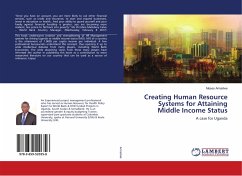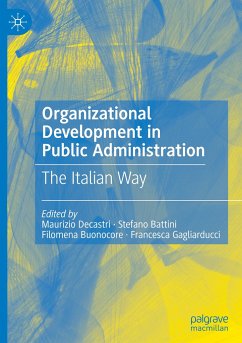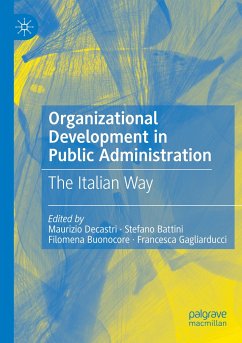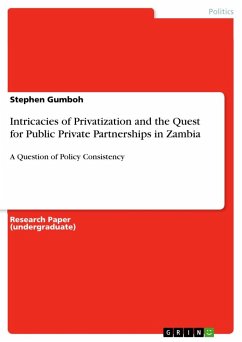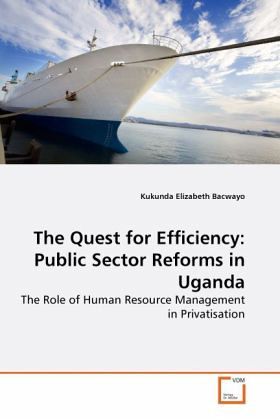
The Quest for Efficiency: Public Sector Reforms in Uganda
The Role of Human Resource Management in Privatisation
Versandkostenfrei!
Versandfertig in 6-10 Tagen
52,99 €
inkl. MwSt.

PAYBACK Punkte
26 °P sammeln!
Since the 1980s Uganda has pursued Public Sector Reforms and Privatisation. This was integrated in the country's development policies through the structural adjustment programs of the IMF and World Bank. It was based on the assumption that the private sector is more efficient in allocation and use of resources and is therefore the best medium for attaining development goals. No empirical evidence existed to confirm or refute these assumptions, particularly in the case of Uganda. This book provides development scholars and practitioners with some evidence that addresses these assumptions. The e...
Since the 1980s Uganda has pursued Public Sector Reforms and Privatisation. This was integrated in the country's development policies through the structural adjustment programs of the IMF and World Bank. It was based on the assumption that the private sector is more efficient in allocation and use of resources and is therefore the best medium for attaining development goals. No empirical evidence existed to confirm or refute these assumptions, particularly in the case of Uganda. This book provides development scholars and practitioners with some evidence that addresses these assumptions. The evidence shows that no significant differences exist between the managerial efficiency of Ugandan private and public enterprises. The differences that are exhibited in the organisations are not related to ownership. Rather they seem to be determined by the values and culture of managers and the labour market conditions in Uganda. Both private and public enterprises exhibit practices that human resource management literature and practice consider as obstacles to efficiency.



